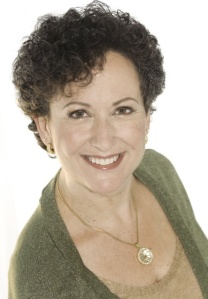Dr. Ruta Nonacs M.D., author of A Deeper Shade of Blue, also serves as Associate Director of the Center for Women’s Health at Massachusetts General Hospital and an Instructor in Psychiatry at Harvard Medical School. She received her MD from Cornell University Medical School and her Ph.D from Rockefeller University in New York.
She is very dedicated to ensuring women, families, and professionals have accurate information regarding depression during a woman’s childbearing years. In fact, her inspiration for her book, A Deeper Shade of Blue, lies within a strong desire to provide a carefully researched resource for women and their families that lays bare the myths and facts of symptoms, treatment, and recovery. Thank you Dr. Nonacs for your pioneering efforts in this area and I look forward to your continued work!
I sincerely appreciate her willingness to share her journey here and hope you enjoy her words!
Who IS Ruta Nonacs? What do you do when you’re not teaching or doing research?
I am trained as a psychiatrist and have spent my professional life doing a combination of research and clinical practice, working mostly with women during their reproductive years. I have recently been devoting more time to Postpartum Support International; it is one of my most important professional goals to increase awareness of postpartum depression. To this end, I spend a fair amount of time writing for both medical and lay audiences. Since having kids, I started working part-time and that has worked well for me. I have two daughters, ages 3 and 8, and I feel fortunate to be able to spend a lot of time with them.
How did you come to be interested in Postpartum Mood Disorders? Was there a particular experience or situation that drew you into the topic?
During my residency, the first patient I took care of was a young woman who was in the first trimester of her pregnancy, and I had the privilege of following her for the next three years. As a single mother, it was a difficult time in her life, and I felt that I was really able to help her a great deal. I can’t help feeling that this experience had something to do with my choices later on. I also had the good fortune of doing my residency at Massachusetts General Hospital, where they have a phenomenal perinatal psychiatry program.
As we both know, motherhood is a life-changing experience. How has motherhood changed you?
It has changed me in so many ways. For one, it has permitted me to slow down and enjoy all the little small pleasures in life.
Postpartum Mood Disorder recognition and treatment options have come quite a long way, even since my first episode a little over four years ago. How much further do we have to go and in your opinion, what can we do to facilitate the furthering of positive change regarding these conditions?
Depression in all shapes and forms carries a real stigma, and I think we still have a long way to go here. I think one of the things that has helped women with postpartum depression to get treatment is hearing about other women’s experiences with the disorder.
Moms need to take time for themselves in order to recharge their batteries. What is it that you do to relax and recharge?
I wish I could say that I am good at following the advice I give to my patients. I probably don’t relax as much as I should, but I do love bicycling, being outdoors, and photography.
Of all the research you have done in the Postpartum Depression area, were there any results you were particularly surprised to obtain? If so, what were they and why were you surprised? If not, would you mind sharing a brief overview of one of your favorite research projects with us?
I think one of the things I have enjoyed about my research (and my clinical work) has been the chance to make things better. Let me clarify this a bit. We have done a great deal of research on identifying risk factors for postpartum depression. Probably the strongest risk factor is having a history of depression or anxiety before pregnancy. By identifying women at highest risk for postpartum depression, we have been able to implement certain interventions that decrease the risk of postpartum illness. That means we can actually prevent postpartum depression, and that is a truly wonderful thing.
Tell us a bit about your book, A Deeper Shade of Blue and the related blog. What inspired these projects?
A Deeper Shade of Blue is a book for the lay public that provides reliable information on the spectrum of mood and anxiety disorders that affect women during their childbearing years. In this book there is information about postpartum depression and also about mood disorders that occur during pregnancy, as well as the psychological issues surrounding infertility and pregnancy loss.
I wrote the book because there is so little accurate information out there on these topics. While there has been increasing awareness of postpartum mood disorders, most women knew very little about mood and anxiety disorders that occur during pregnancy. There is also so much misinformation in this area; for example, many women assume that they can’t take medications during pregnancy or while they are breastfeeding, and that simply isn’t true. I wanted to give women a carefully researched resource, a guide that would help them to be better informed and to get the help they need.
What is your philosophy regarding your approach to Postpartum Depression? How did you develop this philosophy?
My general philosophy is that we can never afford to ignore postpartum depression. Even when it is relatively mild, depression takes a toll on a mother and on her family. This philosophy derives from my clinical experience — seeing way to many women who have not been able to enjoy or participate in important aspects of their lives because they were depressed and did not receive any treatment.
What advice would you give to medical professionals who may come in contact with a mother who is depressed? What are some of the best things they could do for this mom? What should they not do?
I think the first thing to do is to educate the mother. Many women don’t know a lot about depression; they do not know that this is a biological illness. They don’t know what treatments are effective. Depression still carries a significant stigma, and so many women are horribly ashamed about being depressed. Medical professionals need to help to enlighten women and help them to see depression as any other type of illness that requires attention. Medical professionals need to help women access the help they need, whether it is support from the family, talk therapy, or treatment with medications. These resources are sometimes difficult to find, and we need to make sure that women get the help they need.
And last but not least, if you had a chance to give an expectant mother (new or experienced) one piece of advice, what would you tell her?
As hard as it may be, you need to take care of yourself first. If you aren’t taking care of yourself, you can’t be the mother you want to be.



